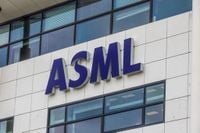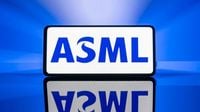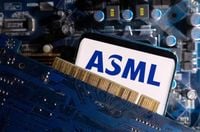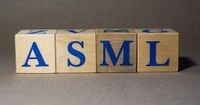ASML Holding N.V., the Dutch semiconductor manufacturing equipment supplier, has reported disappointing first-quarter results for 2025, raising concerns among investors and analysts alike. The company, which plays a crucial role in producing advanced chips for various applications, including artificial intelligence and smartphones, announced net bookings of only 3.9 billion euros (approximately 4.4 billion US dollars). This figure fell significantly short of the consensus estimate of 4.89 billion euros, as prepared by market research firm Visible Alpha.
In its latest earnings report, ASML revealed that the company's sales for the first quarter amounted to 7.74 billion euros, a decline from 9.3 billion euros in the previous quarter. This performance narrowly missed ASML's own forecast of 7.75 billion euros. The net profit for the quarter was recorded at 2.36 billion euros, down from 2.69 billion euros in the fourth quarter of 2024.
The disappointing order intake has been attributed to increased uncertainty stemming from recent U.S. tariff announcements, which have impacted the semiconductor industry. ASML CEO Christophe Fouquet remarked, "The recent tariff announcements have heightened uncertainty in the macroeconomic environment, and the situation will remain dynamic for a while." He emphasized that discussions with customers suggested expectations for growth in 2025 and 2026, driven by investments in artificial intelligence.
ASML, which is the only manufacturer of cutting-edge lithography machines critical for semiconductor fabrication, has seen its shares drop approximately 34% over the past year. The company is heavily reliant on significant clients such as TSMC and Intel, and its latest results indicate a worrying trend in order volumes. In the first quarter, orders for extreme ultraviolet (EUV) systems, essential for producing high-performance chips, totaled only 1.2 billion euros, far below the anticipated 1.58 billion euros.
The growing concern over a potential slowdown in demand for AI technologies has further exacerbated the situation. Analysts have warned that the latest figures signal a need for ASML to secure between 3 to 5 billion euros in orders each quarter to meet its annual targets, which may prove challenging.
Despite the setbacks, ASML has maintained its annual revenue forecast for 2025, projecting net sales between 30 and 35 billion euros, with a gross margin between 50 and 53 percent. The company continues to highlight the role of artificial intelligence as a key growth driver, stating that the current market dynamics are not entirely reflective of the long-term potential the technology holds.
ASML's CFO, Roger Dassen, outlined various ways in which U.S. tariffs could impact the business, including additional fees for importing new systems and tools. He also warned that other countries might impose tariffs on goods imported from the U.S., which could further complicate ASML's operations.
China remains a significant market for ASML, accounting for 27% of the company’s net system sales in the first quarter of 2025. However, the geopolitical tensions and trade restrictions between the U.S. and China continue to pose risks to ASML’s business model. The company’s reliance on the Chinese market, combined with the uncertainty surrounding U.S. tariffs, has left investors cautious.
As the market reacted to ASML's earnings report, shares fell by nearly 5% in early trading, reflecting the nervous sentiment among investors. Analysts from firms such as JPMorgan and Citigroup expressed disappointment over the order intake, describing the results as a significant setback for the company. "The order intake was disappointing, and the uncertainty regarding tariffs clouds the outlook significantly," commented Andrew Gardiner, an analyst at Citigroup.
Despite the immediate challenges, some analysts remain optimistic about ASML's long-term prospects. Jefferies and JPMorgan have set price targets of 660 and 1057 euros, respectively, indicating a belief that ASML can recover from this downturn. However, the company must navigate the current landscape carefully to maintain its competitive edge.
The semiconductor industry, while facing headwinds, is still seen as a critical sector for future technological advancements. The ongoing investments in AI and other emerging technologies may provide a lifeline for ASML if it can manage to stabilize its order intake and address the uncertainties posed by U.S. trade policies.
In summary, ASML's first-quarter results for 2025 highlight a challenging environment for the semiconductor supplier, marked by disappointing order volumes and the looming threat of tariffs. With a focus on artificial intelligence as a growth driver, the company must adapt to the evolving market dynamics while ensuring it meets its ambitious revenue targets. The coming quarters will be pivotal in determining ASML's trajectory as it navigates these complex challenges.










